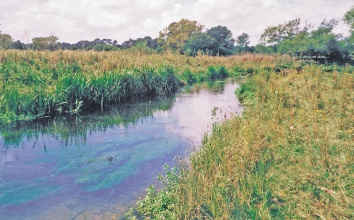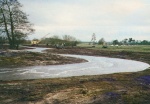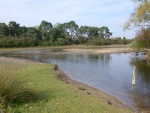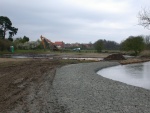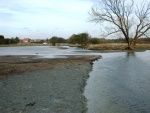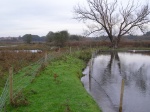Case study:River Little Ouse at Thetford: Difference between revisions
No edit summary |
No edit summary |
||
| Line 82: | Line 82: | ||
|Bank and bed modifications measure=Creation of pools and riffles, | |Bank and bed modifications measure=Creation of pools and riffles, | ||
|Floodplain / River corridor=Creation of backwaters, Habitat creation, Habitat restoration, Creation of pond, | |Floodplain / River corridor=Creation of backwaters, Habitat creation, Habitat restoration, Creation of pond, | ||
|Planform / Channel pattern= | |Planform / Channel pattern=Reconnection of cutoff meander, | ||
}} | }} | ||
{{Hydromorphological quality elements header}} | {{Hydromorphological quality elements header}} | ||
Latest revision as of 16:52, 2 January 2019
Project overview
| Status | Complete |
|---|---|
| Project web site | |
| Themes | Flood risk management, Habitat and biodiversity |
| Country | England |
| Main contact forename | Chris |
| Main contact surname | Gregory |
| Main contact user ID | |
| Contact organisation | British Trust for Ornithology |
| Contact organisation web site | http://www.bto.org/ |
| Partner organisations | |
| Parent multi-site project | |
| This is a parent project encompassing the following projects |
No |
Project summary
In 1991 the site and adjacent land were purchased by the BTO to create a wetland bird reserve. The Little Ouse had previously been straightened and flowed in a trapezoidal channel. In-stream habitat was poor, macrophytes were confined mainly to the shallow margins and the substrate was dominated by sand with some silt and gravel.
The Environment Agency were approached to assist with restoring flows to the original, meandering course which remained as a damp depression. By restoring flows to the old channel 900m of diverse river habitat with varied morphology and a connection to the floodplain was gained.
Problems have been experienced with the breaching of several banks at meanders and the development of permanently ponded areas (the original design was aimed at encouraging seasonal inundation to create suitable nesting habitats for waders such as lapwing). Several attempts have been made to repair these breaches with techniques such as blue clay banks and pre-seeded coir matting
Further remediation works are planned for September 2013 and will consist of the creation of 'living revetments'. The approximate cost of this additional work is £6,000.
Monitoring surveys and results
Lessons learnt
Image gallery
|
Catchment and subcatchmentSelect a catchment/subcatchment
Catchment
Subcatchment
Site
Project background
Cost for project phases
Reasons for river restoration
Measures
MonitoringHydromorphological quality elements
Biological quality elements
Physico-chemical quality elements
Any other monitoring, e.g. social, economic
Monitoring documents
Additional documents and videos
Additional links and references
Supplementary InformationEdit Supplementary Information
| |||||||||||||||||||||||||||||||||||||||||||||||||||||||||||||||||||||||||||||||||||||||||||||||||||||||||||||||||||||||||||||||||||||||||||||||||||||||||||||||||||||||||||||||||||||||||||||||||||||||||||||||||||||

